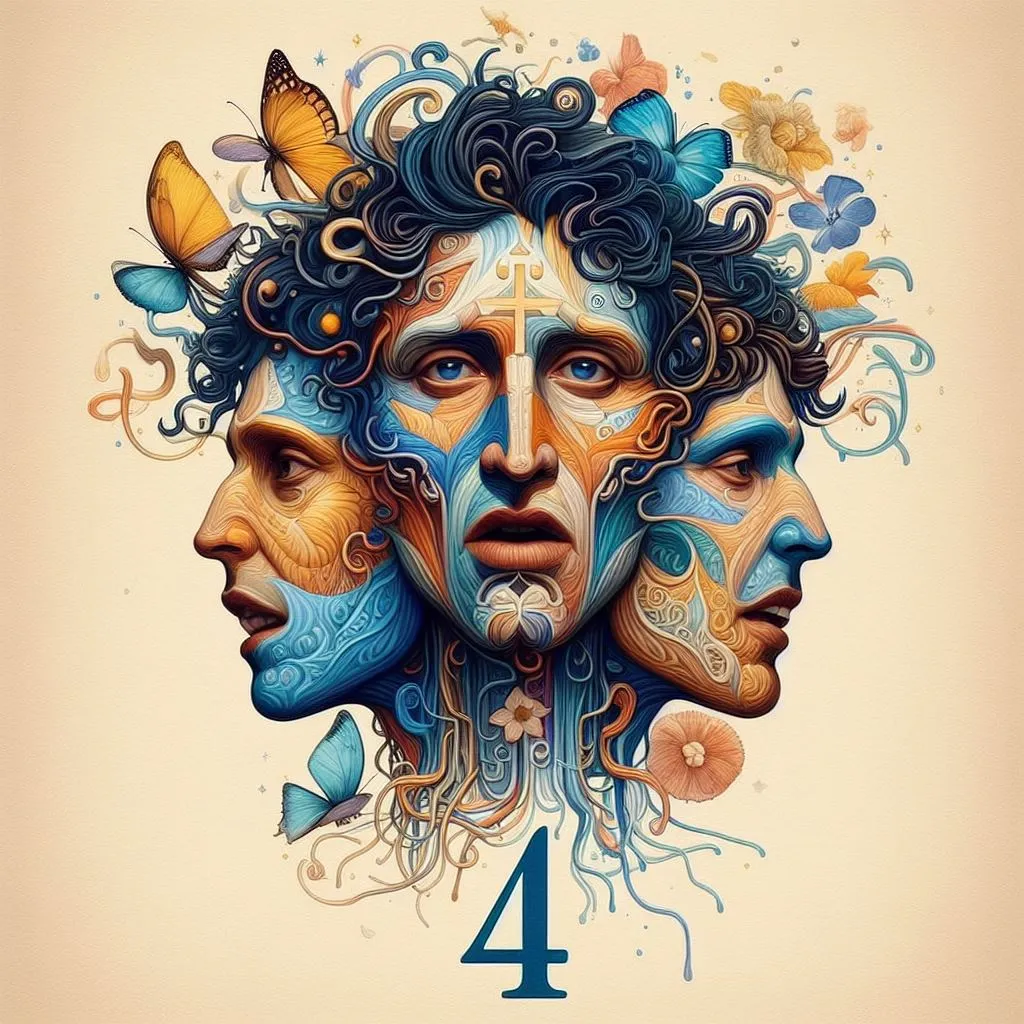Don't be sad, be Enneagram Type 4 instead

In response to Sasha Chapin’s recent post on his enneagram type, I thought I’d add to the Type of Guy literature by describing my type, the four.
Ah, the four: Champion of melancholy. Sommelier of solitude. He is the hopeless romantic. He is the depressed artist who redeems himself in blog posts. He is grand and grandiose, brilliant and utterly insufferable, often in the span of a single breath. (See: Sommelier of solitude.)
One must imagine meeting Rilke for the first time, innocently asking him for the time and weather. You may find yourself instead voyaging through hell on the wings of an incandescent angel, unable to grasp or resist the terror and sublimity that overcomes the entirety of your being, as he whispers poetica into your ears. You’re disoriented and want to keep away. All you wanted was the time of day. And yet, you feel that there is something irresistible about him. You can’t name it and therefore comprehend him, which is what he wants to avoid. You can only watch as he pulls you in like a moth to his flame. He is a spectacle to behold but never to hold, a dying star held in constant tension by the gravity of his inner depths and the desire to transcend himself entirely.
He surfs both waves of ecstasy and abysses of despair, searching for the current that will finally bring him home. Except that, when he finds himself on the shoreline, he willingly jumps back into the ocean and lets the tide take him elsewhere, until the longing returns. Home is what he needs, but longing is what he subconsciously wants. This deep longing—for belonging, for connection to something greater than himself, for the penultimate love—has roots in loss, often early in life, so it goes. It is both the siren song of his suffering and the muse of his creativity, which is why he feels he cannot live without it. Constant discontent, then, is a prominent feature of his life. He has trouble appreciating the mundane, living in the moment, seeing that everything is, in a sense, already perfect. Something always seems missing, and he often feels estranged from the world.
Music and art, metaphor and symbol, realms transcendent and his imagination are thus a sanctuary. Here he can overcome the missingness and his fear of inadequacy and personal insignificance through the richness of his inner life. Here he can become whoever he wants while riding the high of his reveries. This is not the same as what he really yearns for, but it’s easier to sustain a self built upon visions and fantasies than it is to interface with the messiness of reality. Should his image be discovered for what it truly is, he will retreat and regress further inward like an ouroboros until he is fully consumed.
This act of internal self-creation cannot go on forever in isolation. He cannot get out of hell on his own, even with the help of incandescent angels. The wholeness he seeks is co-created in the dance between inner and outer, in seeing that the division was always illusory. He must recognize that he needs direct contact with the world.
Knowing this, he begins to live for something beyond himself. He subjects himself to more than the whims of his fleeting impressions and feelings. Inside is constantly in conversation with reality, and he is created in the process. The works he may happen to produce, the effect he has on others, all of it becomes a reflection of who he really is. His fear of insignificance is made insignificant in the light of his entanglements.
Even Rilke was not free from the hands of time. He was born into the world and died a part of it. Had he not integrated his inner life with the outer world, we may not have appreciated the subtle sorrows of an autumn day. We may not have felt the urgency to change our lives when confronted with the truth of beauty.
The four: he is Rilke. He is Elliott Smith in his bathroom, actualizing the potential he’ll never see. He is me, looking to be made significant in the eyes of God. Notice me, senpai Sasha.